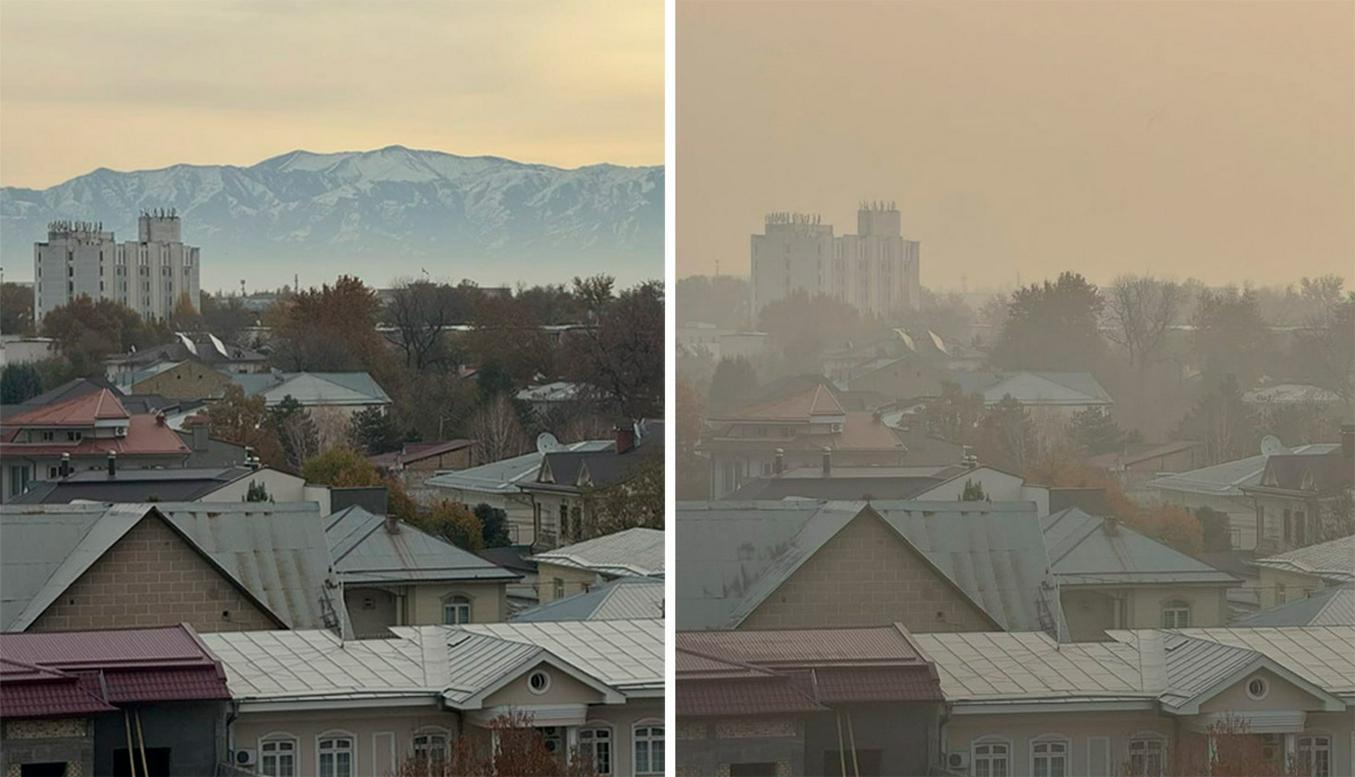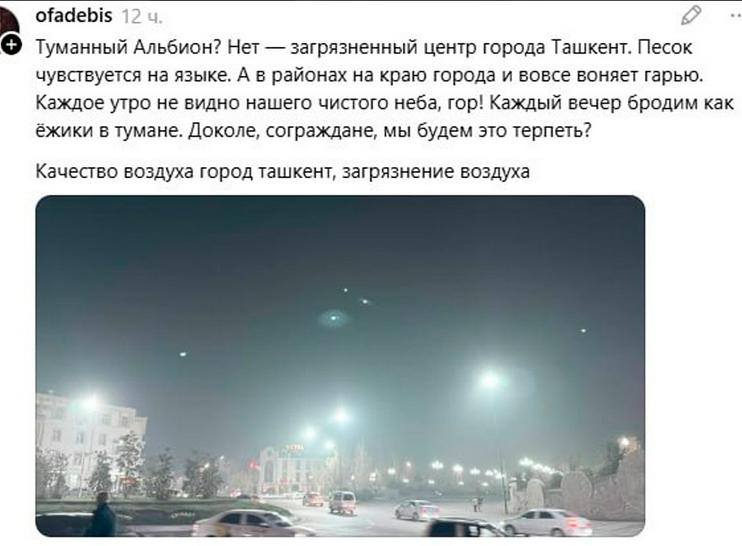Uzbekistan’s Hydrometeorological Agency (Uzhydromet) has begun issuing daily warnings about deteriorating air quality and advising residents across the country to wear protective masks outdoors.
On November 20, according to data from automatic monitoring stations, the concentration of PM10 particles in Tashkent reached 299 micrograms per cubic meter—just below the legal limit of 300 µg/m³. However, PM2.5 levels rose to 202 µg/m³, exceeding the national standard by a factor of 3.4 (the limit is 60 µg/m³).
Uzhydromet explained that the rise in pollutant concentrations is linked to sharp temperature shifts causing atmospheric inversion—when contaminated air becomes trapped in lower layers of the atmosphere. The agency noted that unfavorable conditions will persist for several more days and advised residents and visitors to limit time outdoors and wear masks.
Since November 10, the agency has been publishing PM2.5 and PM10 data for Tashkent on its Telegram channel, accompanied by city maps. As Gazeta.uz points out, Uzhydromet had previously released only annual average pollution figures.
Under the national standard adopted in May 2024 (SanPiN 0053–23), the maximum allowable daily average concentration for PM2.5 is 60 µg/m³ and for PM10—300 µg/m³. The World Health Organization, by comparison, recommends far stricter levels of 15 µg/m³ and 45 µg/m³ respectively.
Uzhydromet notes that air pollution typically spikes with the arrival of colder weather, as the use of solid fuels increases. The main consumers of coal are factories, industrial facilities, and greenhouse farms.
Greenhouse operations have drawn particular criticism from the public and local authorities. Tashkent officials have identified greenhouses as a key source of pollution. Following inspections in the city and surrounding region, more than 100 greenhouses were shut down for violating environmental safety requirements. Fifty-eight owners have been fined.
Environmental concerns were also raised at a meeting chaired by President Shavkat Mirziyoyev, who called for stricter oversight and more transparency in the sector. The Ministry of Energy, the administrations of Tashkent and Tashkent Region, and the Ministry of Economy and Finance were instructed to assess greenhouse gas consumption, inspect distribution networks, and eliminate supply disruptions. Priorities include the introduction of energy-efficient heating technologies and a shift to alternative energy sources such as biogas and solar power.











